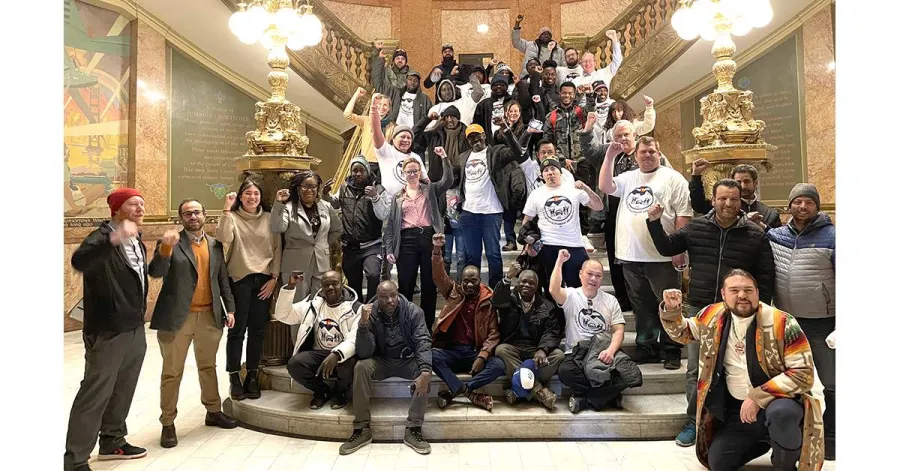App-Based Workers Make Gains in Colorado While Facing Setbacks in California

In June, members of the Colorado Independent Drivers United (CIDU-CWA Local 7777) in Denver, Colo., won twin victories when Colorado Governor Jared Polis signed HB24-1129 and SB24-75 into law. The bills will require transparency between companies—such as Uber, Lyft, and DoorDash—and their workers, create a driver resource center, and provide protections for both delivery and transportation drivers against deactivation, which amounts to termination but can be entirely driven by artificial intelligence without human oversight.
These laws constitute the first-ever legislation of its kind and may form a blueprint for other states seeking to protect vulnerable rideshare and delivery workers.
Meanwhile, in California, the opposite is taking place, with the California Supreme Court’s recent ruling upholding a state ballot measure allowing app-based transportation companies to classify their drivers as independent contractors. The ballot measure, Proposition 22, received 58% of the vote in 2020 but was overturned in 2021 by a lower court. In 2023, the law was upheld by the state's 1st District Court of Appeals and has now been upheld by the state’s highest court.
Opponents of the California law hold that it disproportionately impacts Black, brown, and immigrant workers and is little more than a cash grab by app-based transportation companies.
While an Uber driver in Denver has workplace protections, access to a driver resource center, and protections against wrongful termination, their counterparts in Los Angeles have none.
Efforts to organize app-based delivery and transportation workers are stymied by the nature of the work, which can be isolating and provide almost no control for workers. Business owners have sought, through challenges to worker rights law, to make app-based transportation workers a permanent underclass with few protections and almost no legal responsibilities for the businesses that employ them. Industry experts put the number of app-based workers in California at approximately 1.4 million.

Members and supporters of CIDU-CWA Local 7777 in Denver, Colo., celebrated winning protections for both delivery and transportation workers for app-based companies like Uber, Lyft, and DoorDash.
---
This post originally appeared on cwa-union.org.
Graphic Audio First Contract Negotiations: 02/24/2026
Get Involved: CWA Black History Month Town Hall


